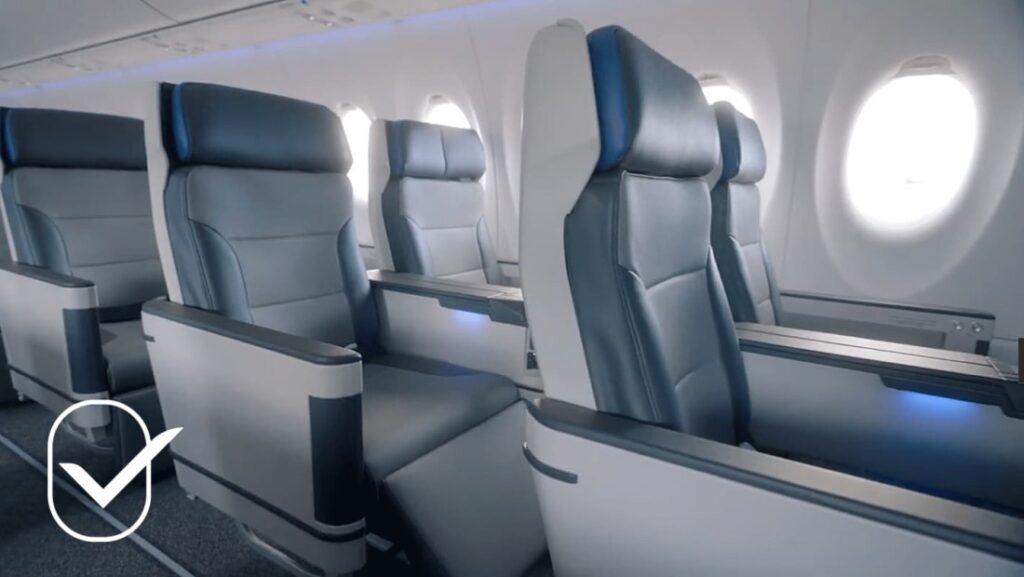Breeze Airways’ Path to Profitability: Balancing Premium Service with Low-Cost Operations
Share
In an interview at APEX-IFSA Global EXPO in Long Beach, Breeze Airways‘ Chief Guest Officer Fiona Kiesel outlined how the airline is rethinking the low-cost carrier model while achieving its first profitable quarter in 2024. Speaking with APEX CEO Dr. Joe Leader, Kiesel detailed the airline’s approach to combining premium service with cost-effective operations.

“We’re a premium major low-cost carrier,” explained Kiesel, who joined Breeze in July 2023 after a 24-year tenure at United Airlines. This distinctive positioning reflects the airline’s strategy of serving underserved markets while maintaining premium offerings like Breeze Ascent, their first-class product.
The airline’s operational model centres on efficiency and guest satisfaction. Kiesel highlighted the advantage of operating from smaller, less congested airports, noting that passenger transit times from curb to gate can occur in minutes. This efficiency extends to their route network, prioritising point-to-point service over traditional hub-and-spoke operations.
Central to Breeze’s success is its modern fleet of Airbus A220 aircraft, which offer 25% better fuel efficiency than similar-sized aircraft. This fleet choice aligns with the airline’s broader sustainability strategy. However, Kiesel wouldn’t be drawn to the recent debate on sustainable aviation fuel (SAF) between Breeze CEO David Neeleman and IATA CEO Willie Walsh, where Neeleman expressed some scepticism about the viability of SAF.

In the interview, Kiesel said that the airline has made significant strides in operational performance, with on-time rates improving to approximately 90% in recent months. This improvement stems from a fundamental shift in operational philosophy. Rather than employing traditional delay codes that can foster interdepartmental blame, Breeze focuses on process improvement and team collaboration.
“When we look at the process, I look at it from the perspective of, well, we’ve created all of these processes for our team members to follow… if they’re not successful with that process, it’s most likely…because we’re not setting them up for success,” Kiesel explained.
Customer satisfaction metrics validate this approach, with Net Promoter Scores (NPS) in the 60s, relatively high for the airline industry. The airline maintains this performance through extensive data analysis and customer feedback review. Kiesel personally reviewed thousands of NPS comments, leading to the development of 16 new customer experience initiatives.
Technology plays a crucial role in Breeze’s service delivery. The airline is developing tools to provide flight attendants with real-time passenger information, enabling more personalised service recovery for guests who may have experienced previous service disruptions.
The airline’s culture is built around its “seriously nice” tagline, influencing everything from hiring practices to service delivery. “We hire nice people… We say that we’re flying nice people to nice places,” Kiesel emphasised, highlighting how this approach shapes the entire guest experience.
Looking ahead, Kiesel suggests that Breeze’s disruption of the aviation industry may not come through technological innovation alone but through fundamentally changing how passengers view air travel. As the airline enters its fourth year of operations, its focus remains on building its brand while maintaining the delicate balance between premium service and cost-effective operations.


